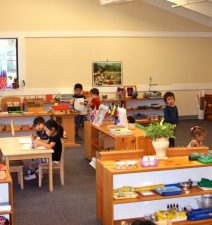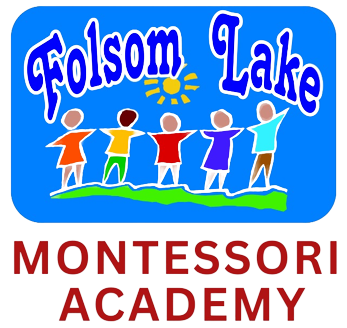
Some Worthy Advantages of Montessori Pre-School Academy
Every parent knows what is best for their kid. It is obvious that before the general schooling starts some Montessori pre-schooling is always required. But before one goes for such schooling for their kids must know few essential facts regarding such academy as to why these are a must for a kid. In this article I have tried to highlight some of such benefits which a kid would learn only through such Montessori training. These are as follows:
1. Hands-On Learning: One of the greatest benefits of the Montessori Method, particularly during the early learning experience, is the focus on hands-on learning. The emphasis is on concrete, rather than abstract learning, as students work on activities that teach language, math, culture and practical life lessons. Teachers encourage students to concentrate on tasks, and they discourage students from interrupting one another, allowing students to focus on activities until they are properly mastered.
2. Individualized System: Students in the Montessori program are allowed to explore activities and concepts at their own pace. This naturally encourages children to try more challenging areas, which accelerates their learning experience. Learning occurs at a comfortable pace for each student, rather than inflicting the same rate on every student in a classroom.
3. Effective in Development: According to a science journal published in 2006, five-year-old’s in Montessori classrooms had higher math and reading skills than their counterparts in public schools. In addition, the study compared 12-year-old Montessori and non-Montessori students. While math and reading skills appeared to be more on par with this age group, social development appeared to be higher in Montessori students by this age.
4. Creative Method: Since children are allowed to choose their activities and work at them on their own terms, creativity in the classroom is encouraged. Children work at tasks for the joy of the work, rather than the end result, which allows them to focus more on process than result – a natural path to creativity. Exposure to a wide variety of cultures also encourages children to broaden their thinking about the world and address those concepts in a variety of ways.
5. Teachers Facilitation: Teachers in the Montessori classroom are “guides” that are there to facilitate the learning experience, rather than determine what it will look like. Teachers take the lead from the children in the classroom, ensure the ground rules are followed, and encourage students to perform tasks at their own pace. However, teachers do not determine the pace of the classroom – that is strictly up to individual students, as teachers strive to remain as unobtrusive as possible.
6. Classroom Environment: All objects and activities have precise locations on the shelves of a Montessori classroom. When children are finished with an activity, they place items back into their appropriate places. This sense of order helps facilitate the learning process, teaches self-discipline, and caters to a young child’s innate need for an orderly environment. When children work and play in an area that is neat and predictable, they can unleash their creativity and focus fully on the learning process.
7. Self-Discipline Learning: While the Montessori Method allows children to choose the activities they want to work on each day, and how long they will work at a specific task, there are specific “ground rules” for the class that are consistently enforced by the teacher and other students. This environment naturally teaches children self-discipline, and it refines important skills like concentration, self-control and motivation.
8. Child-Centered Learning: Montessori preschool students enjoy a classroom and curriculum designed around their specific needs and abilities that allows them to explore and learn at their own pace and on their own terms. Everything in the classroom is within reach of the child, and furniture is sized for children to sit comfortably. In addition, older children in the class work with the younger ones, so mentoring comes as much from peers as it does from the adult teachers in the classroom.
9. Cooperative Play: Because the teacher does not “run” the classroom, students guide the activities they do throughout the day. This encourages children to share and work cooperatively to explore the various stations in the Montessori classroom. Children in Montessori classrooms, by the very nature of the environment, learn to respect one another and build a sense of community.
10. Key-Development Focus: A Montessori curriculum focuses on key developmental milestones in children between the ages of three and five-years-old. Younger children focus on honing large muscle and language skills. Four-year-old’s work on fine motor skills and completing everyday activities, such as cooking and arts and crafts. Older preschoolers broaden their learning experience to their communities, through trips and special events.
Keeping all the above-mentioned points in mind one can think of Folsom Lake Montessori Academy (FLMA) which is a quality childcare provider located in Folsom, California, offering Infant, Toddler, Preschool, Kindergarten, and Summer school programs. They are committed to excellence, providing quality education and care for infants, toddlers, and preschool children up to Kindergarten. Their philosophy is based on Montessori principles of developing well-rounded individuals. Their program includes Math, Science, English, Geography, Sensory Development, and Practical Life Experiences. In addition, they offer Enrichment programs as part of the curriculum for ages 2+. The enrichment programs have all kinds of options, such as Amazing Athletes, Gymnastics, Karate, Music Mike, and Foreign languages provided by well-trained and certified professionals in Sacramento region. They also offer Summer School program (for children ages 6 year to 12 years) and enhance Montessori learning with field trips.
Published on: 22 May 2019
Schedule a Tour

